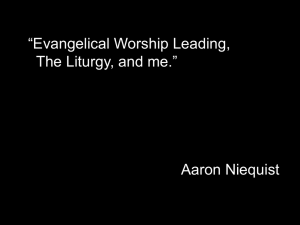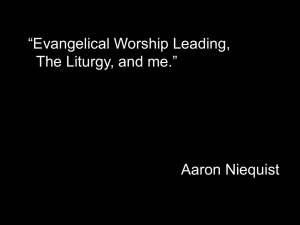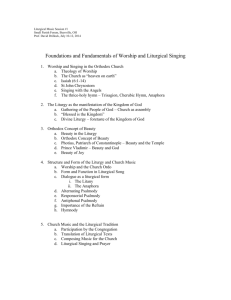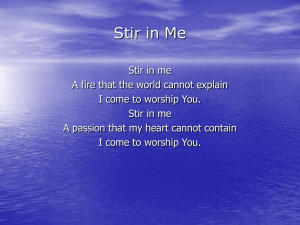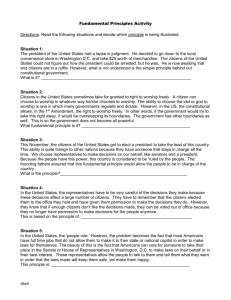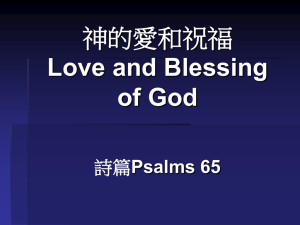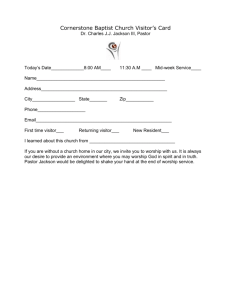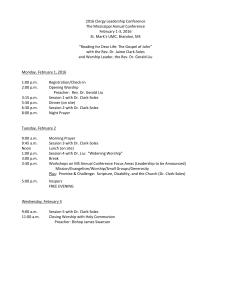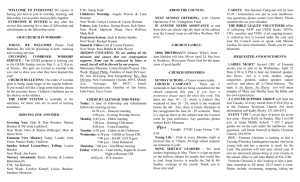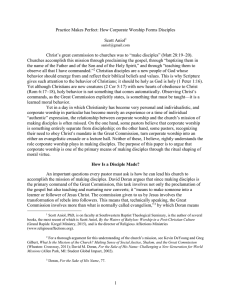L7100
advertisement
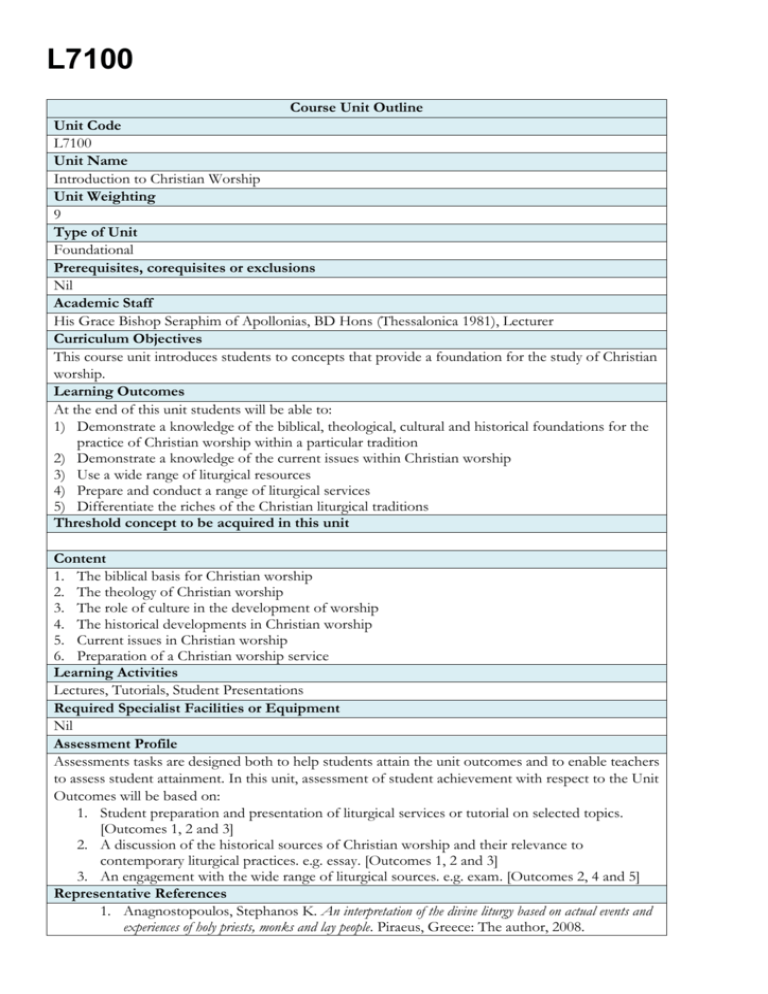
L7100 Course Unit Outline Unit Code L7100 Unit Name Introduction to Christian Worship Unit Weighting 9 Type of Unit Foundational Prerequisites, corequisites or exclusions Nil Academic Staff His Grace Bishop Seraphim of Apollonias, BD Hons (Thessalonica 1981), Lecturer Curriculum Objectives This course unit introduces students to concepts that provide a foundation for the study of Christian worship. Learning Outcomes At the end of this unit students will be able to: 1) Demonstrate a knowledge of the biblical, theological, cultural and historical foundations for the practice of Christian worship within a particular tradition 2) Demonstrate a knowledge of the current issues within Christian worship 3) Use a wide range of liturgical resources 4) Prepare and conduct a range of liturgical services 5) Differentiate the riches of the Christian liturgical traditions Threshold concept to be acquired in this unit Content 1. The biblical basis for Christian worship 2. The theology of Christian worship 3. The role of culture in the development of worship 4. The historical developments in Christian worship 5. Current issues in Christian worship 6. Preparation of a Christian worship service Learning Activities Lectures, Tutorials, Student Presentations Required Specialist Facilities or Equipment Nil Assessment Profile Assessments tasks are designed both to help students attain the unit outcomes and to enable teachers to assess student attainment. In this unit, assessment of student achievement with respect to the Unit Outcomes will be based on: 1. Student preparation and presentation of liturgical services or tutorial on selected topics. [Outcomes 1, 2 and 3] 2. A discussion of the historical sources of Christian worship and their relevance to contemporary liturgical practices. e.g. essay. [Outcomes 1, 2 and 3] 3. An engagement with the wide range of liturgical sources. e.g. exam. [Outcomes 2, 4 and 5] Representative References 1. Anagnostopoulos, Stephanos K. An interpretation of the divine liturgy based on actual events and experiences of holy priests, monks and lay people. Piraeus, Greece: The author, 2008. 2. Bradshaw, Paul, F. Eucharistic origins. London: SPCK, 2004. 3. Calivas, A.C. Essays in Theology and Liturgy – Vol.3: Aspects of Orthodox Worship. Brookline, MA: Holy Cross Orthodox Press, 2003. 4. Ferguson, Everett. Baptism in the early church: History, theology, and liturgy in the first five centuries. Grand Rapids, Michigan: William B. Eerdmans Publishing Company, 2009. 5. Hall, Christopher A. Worshiping with the church fathers. Downers Grove, Illinois: IVP Academic, 2009. 6. Irwin, Kevin W. Models of the Eucharist. New York: Paulist Press, 2005. 7. Jevtic, Atanasije. Christ the New Pasha: The Divine Liturgy. Trebinje, Belgrade, Serbia: Chilander, Ostrog & Tudros Monasteries, 2007. 8. Johnson, Lawrence, J. Worship in the Early Church: An anthology of historical sources (In 4 volumes with a CD). Collegeville, Minnesota: Liturgical Press, 2009. 9. Kasper, Walter. Sacrament of Unity: The Eucharist and the Church. Translated by Brian McNeil. New York: Crossroad Publishing Company, 2004. 10. Taft, R F. A History of the liturgy of St John Chrysostom: Volume II: The great entrance. Rome: Pontificio Instituto Orientale, 2004. 11. Taft, R F. Through Their Own Eyes: Liturgy as the Byzantines Saw It. Berkeley, CA: Interorthodox Press, 2006. 12. White, James. Introduction to Christian Worship: Descriptive and Interpretive Sources. Nashville: Abingdon, 2001

